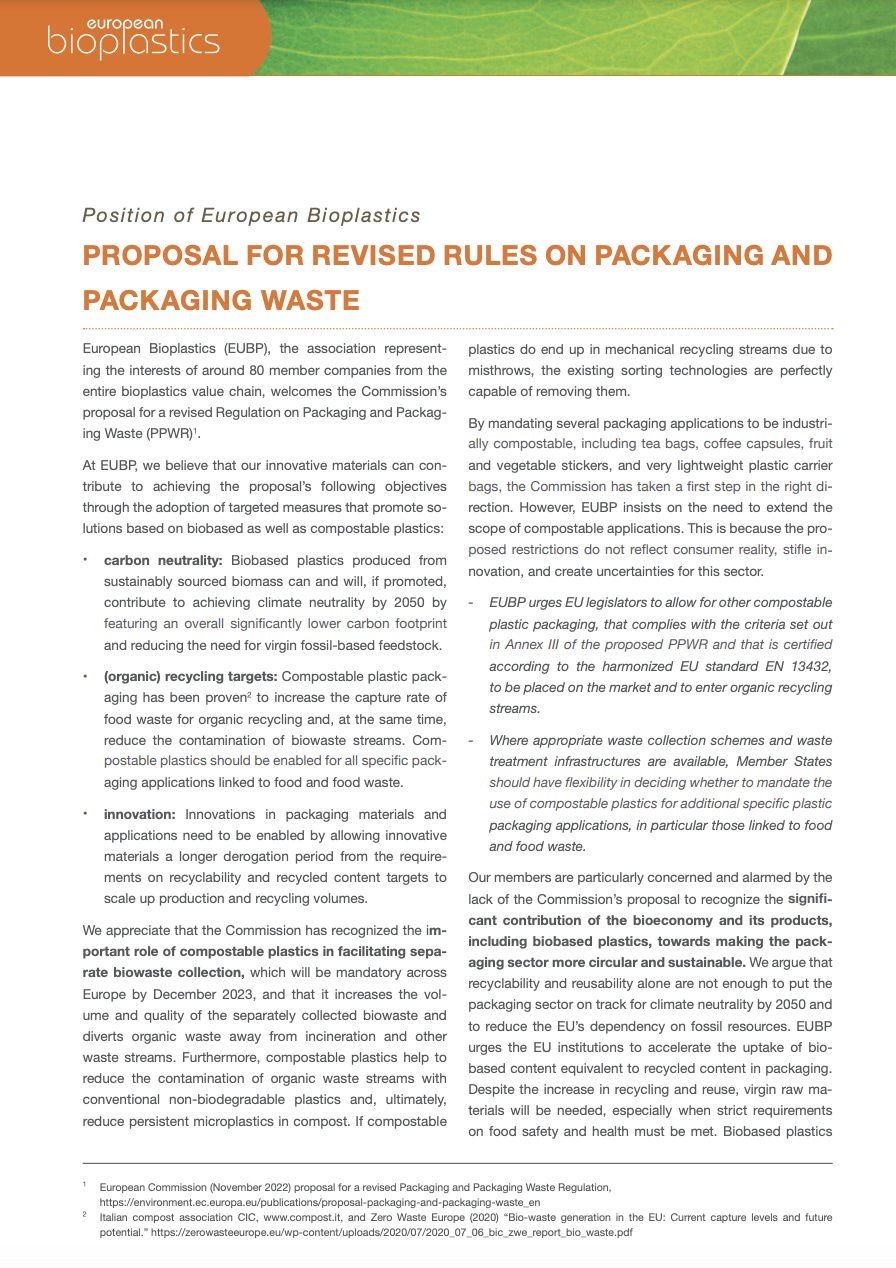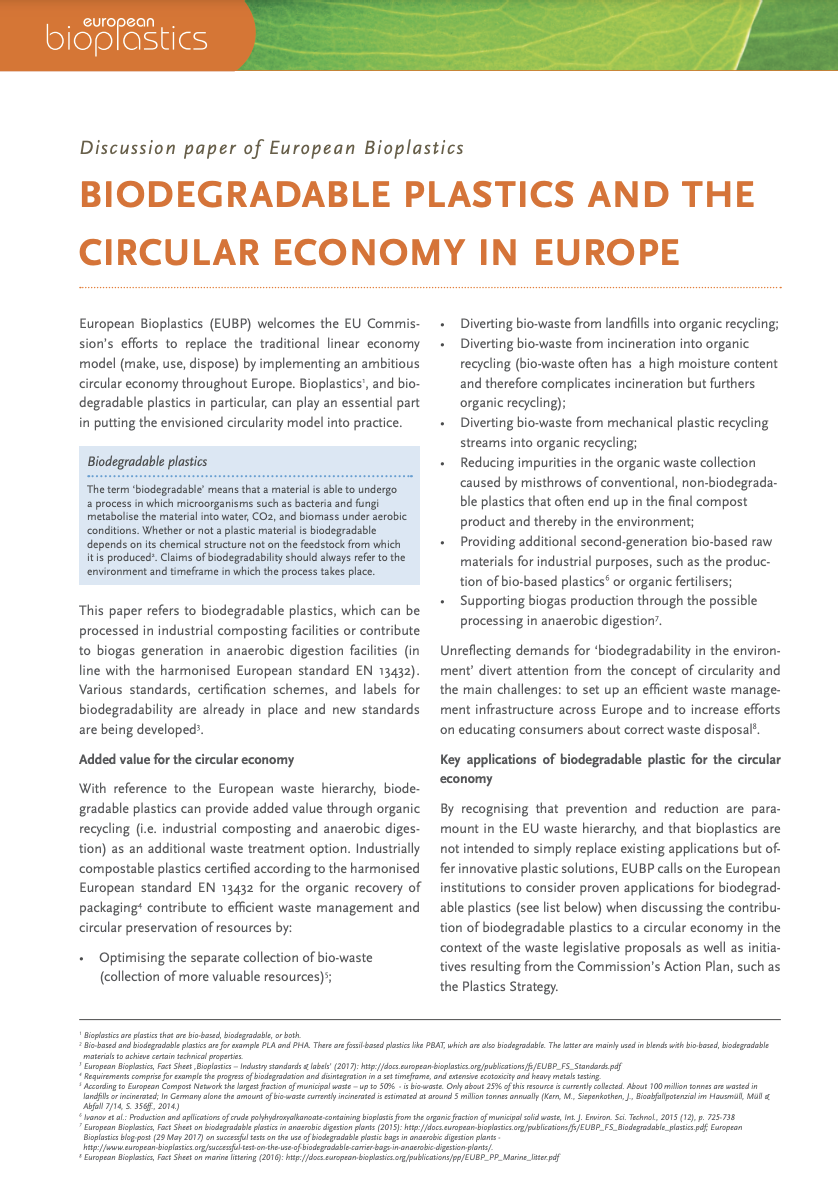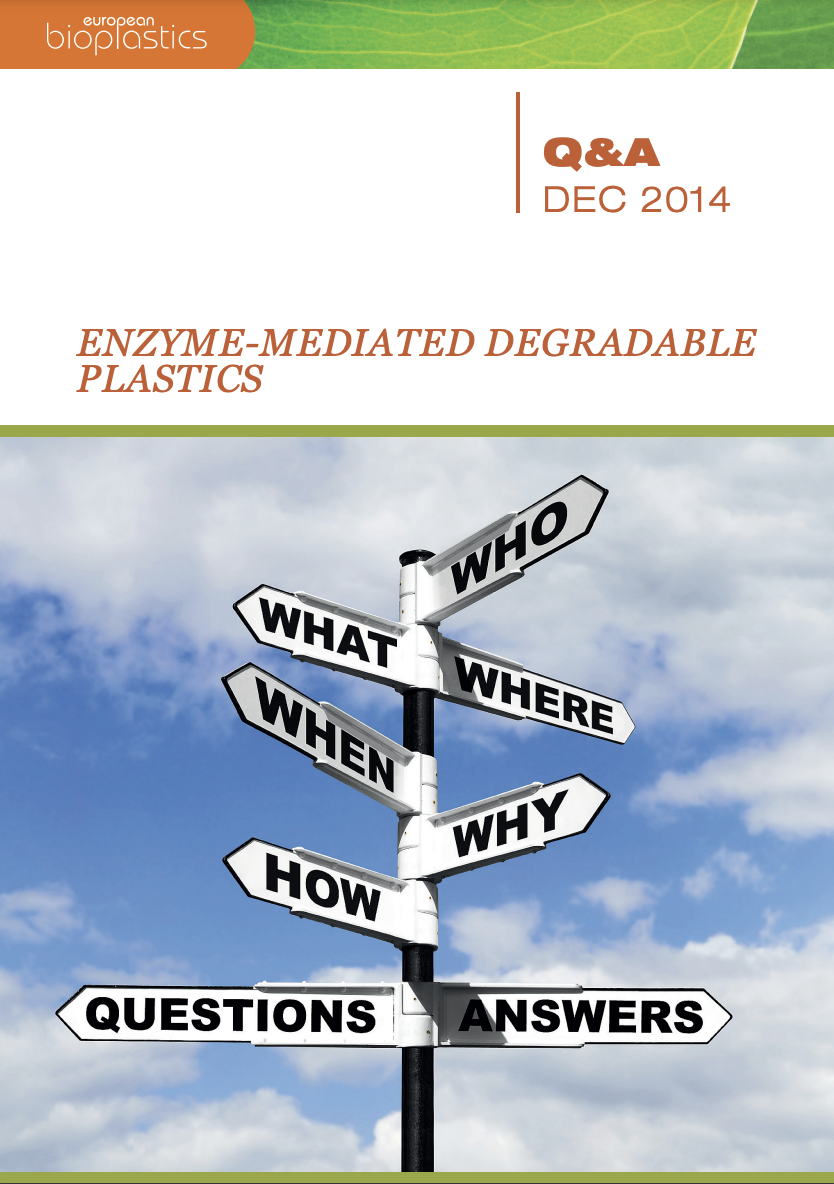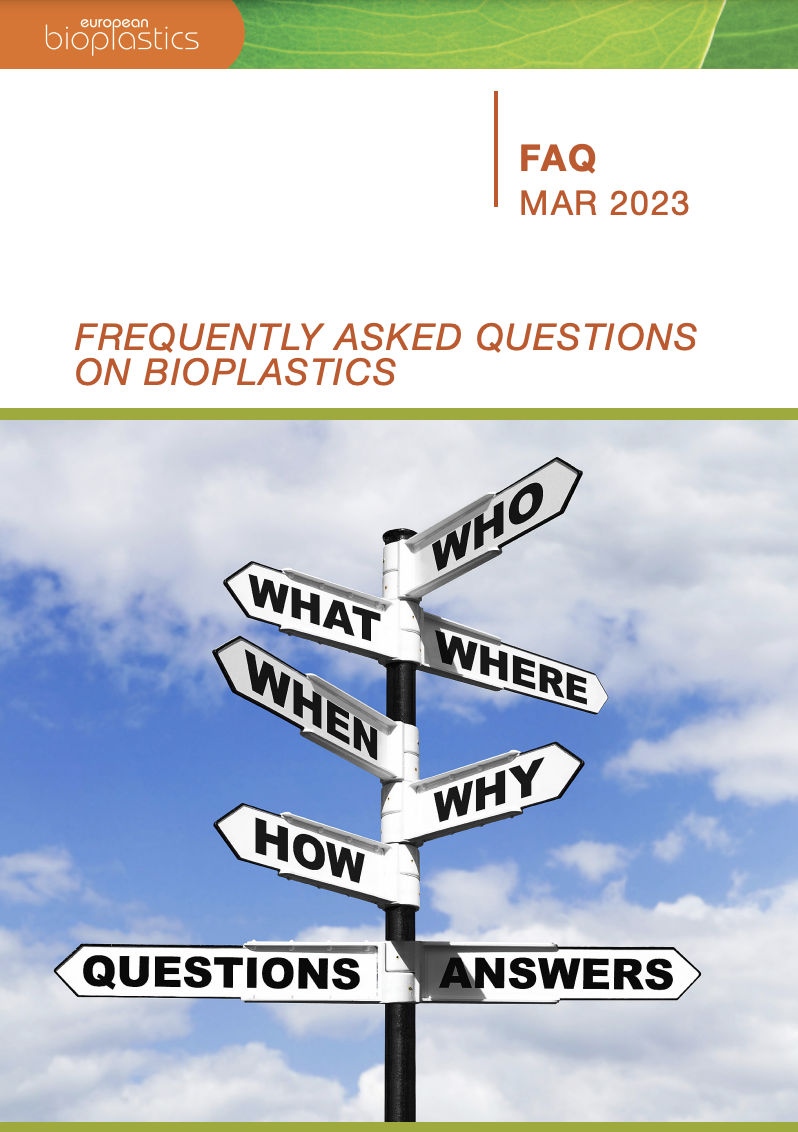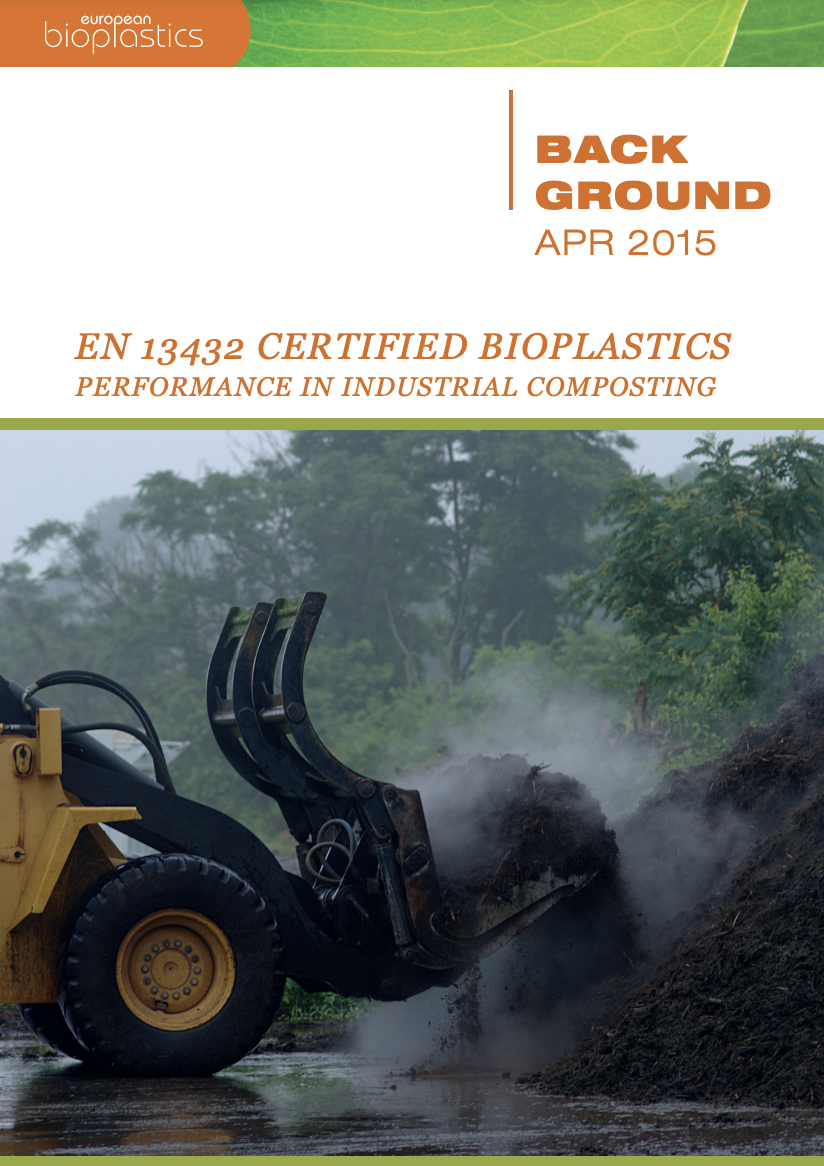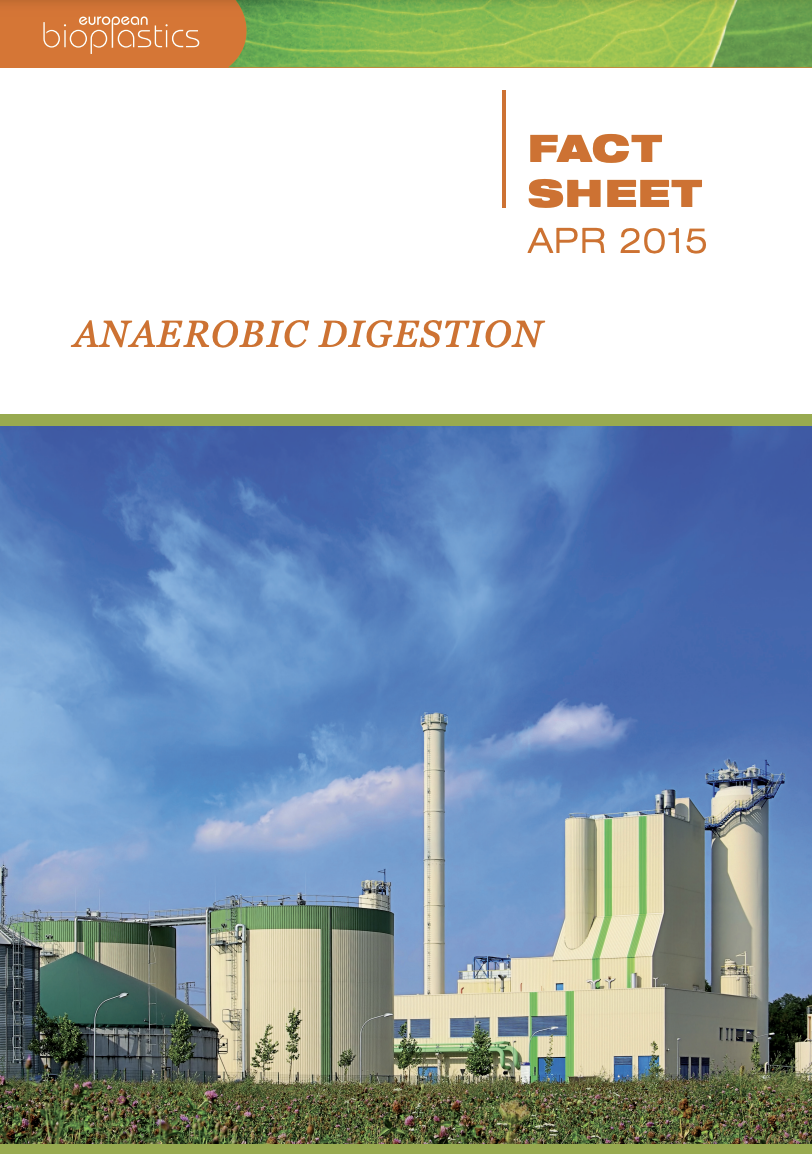EUBP publishes positions on PPWR and proposes amendments
European Bioplastics (EUBP), the association representing the interests of around 80 member companies from the entire bioplastics value chain, welcomes the Commission’s proposal for a revised Regulation on Packaging and Packaging Waste (PPWR). EUBP believes that innovative materials, particularly biobased and compostable plastics, can contribute to achieving the PPWR's objectives through the adoption of [...]
